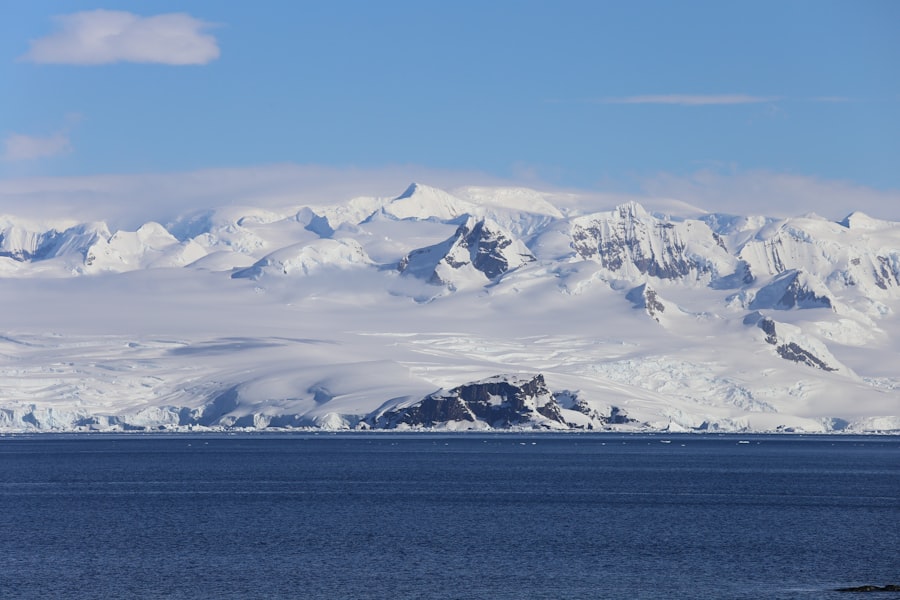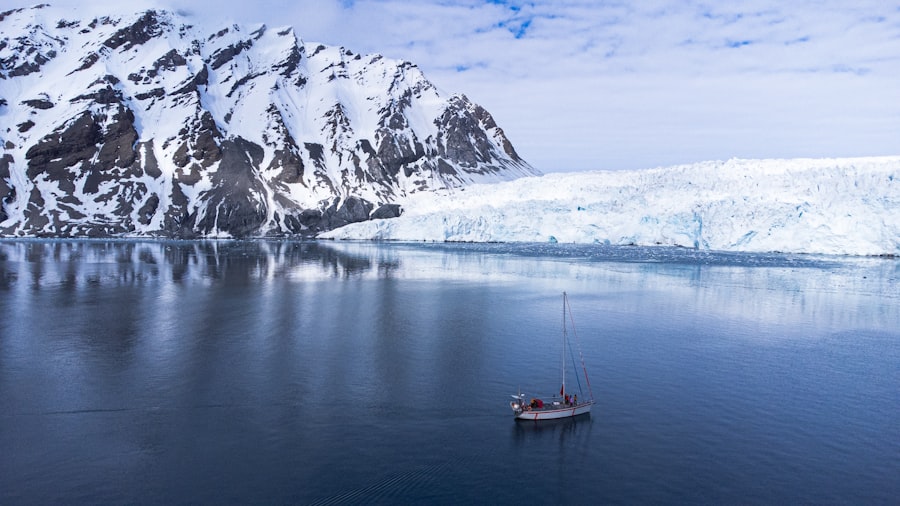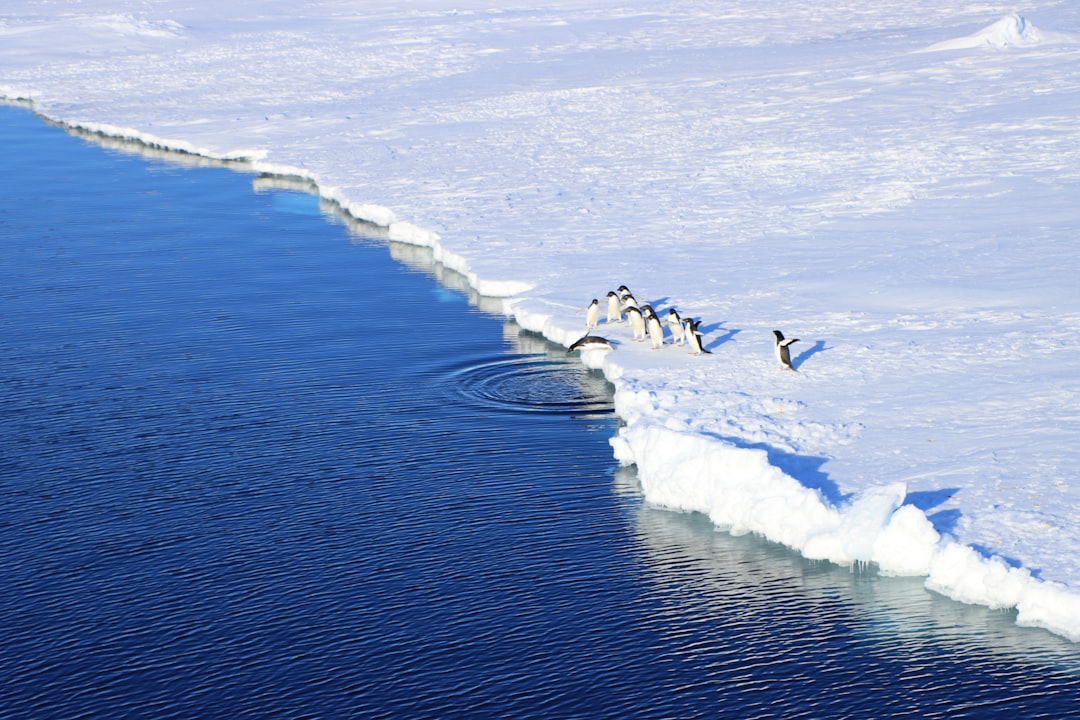The Antarctic Treaty, signed in 1959 and entering into force in 1961, represents a landmark agreement in international relations, establishing Antarctica as a zone dedicated to peace and scientific exploration. The treaty was born out of the geopolitical tensions of the Cold War, with twelve nations initially signing it, including the United States, the Soviet Union, and several European countries. Its primary objectives are to ensure that Antarctica remains free from military activity, to promote international scientific cooperation, and to protect the continent’s unique environment.
The treaty has since been acceded to by numerous other nations, expanding its reach and influence. The significance of the Antarctic Treaty extends beyond its immediate provisions. It has fostered a spirit of collaboration among countries that might otherwise be at odds, allowing for shared research initiatives and the exchange of scientific knowledge.
The treaty prohibits any military presence or nuclear testing on the continent, thereby establishing a framework for peaceful coexistence. As a result, Antarctica has become a symbol of international cooperation, demonstrating that even in a world marked by conflict, nations can unite for the common good of humanity and the planet.
Key Takeaways
- The Antarctic Treaty prohibits military activities but secret operations have occurred historically.
- Multiple countries have engaged in covert military actions in Antarctica, raising legal and ethical concerns.
- Military operations have caused environmental damage, highlighting the need for stricter oversight.
- Transparency and international cooperation are crucial to prevent conflicts and ensure peaceful use of Antarctica.
- Strengthening regulations and enforcement is essential for the future management of military activities on the continent.
The History of Military Operations in Antarctica
While the Antarctic Treaty explicitly prohibits military activities on the continent, the history of military operations in Antarctica is complex and multifaceted. During World War II, various nations conducted reconnaissance missions and established temporary bases in the region, primarily for strategic purposes. The harsh and inhospitable environment of Antarctica posed significant challenges to military operations, yet the strategic importance of the continent was not lost on military planners.
The post-war period saw an increase in interest in Antarctica, as nations sought to assert their claims over territorial waters and land. In the years following the establishment of the Antarctic Treaty, military operations have largely been curtailed. However, some nations have maintained a presence in the region under the guise of scientific research.
This dual-use nature of operations has raised questions about the true intentions behind certain activities. While many research stations are indeed focused on scientific inquiry, there have been instances where military personnel have been involved in logistical support or surveillance operations disguised as research activities. This blending of military and scientific endeavors complicates the narrative surrounding military operations in Antarctica.
The Secret Military Activities in Antarctica

Despite the Antarctic Treaty’s clear stipulations against military activity, there are persistent rumors and reports suggesting that secret military operations continue to take place on the continent. These clandestine activities often involve advanced technology and research that may have dual-use applications. For instance, some reports indicate that nations have been conducting experiments related to climate change, weather modification, and even potential military applications of emerging technologies.
The remote and isolated nature of Antarctica provides an ideal setting for such operations to remain hidden from public scrutiny. The secrecy surrounding these military activities raises significant concerns about accountability and transparency. While nations may argue that their operations are necessary for national security or scientific advancement, the lack of oversight can lead to environmental degradation and violations of international law.
Furthermore, the potential for militarization of Antarctica poses a threat to the fragile ecosystem and undermines the spirit of cooperation that the Antarctic Treaty was designed to promote. As such, it is crucial for the international community to remain vigilant and demand transparency regarding any military-related activities in this pristine environment.
The Role of Various Countries in Secret Military Operations
| Country | Known Secret Military Operations | Years Active | Primary Objectives | Notable Outcomes |
|---|---|---|---|---|
| United States | Operation Ajax, Operation Neptune Spear, Operation Mockingbird | 1953 – Present | Regime change, counterterrorism, intelligence gathering | Overthrow of Iranian government (1953), killing of Osama bin Laden (2011) |
| Russia (Soviet Union) | Operation Trust, Afghan War covert operations, Cyber espionage campaigns | 1920s – Present | Espionage, influence operations, military intervention | Disruption of opposition groups, prolonged Afghan conflict |
| United Kingdom | Operation Gladio, MI6 covert missions, Falklands War secret ops | 1940s – Present | Counter-communism, intelligence gathering, military support | Counter-insurgency in Europe, intelligence successes in Cold War |
| Israel | Operation Entebbe, Mossad covert operations, Operation Wrath of God | 1976 – Present | Counterterrorism, hostage rescue, intelligence gathering | Successful hostage rescue in Entebbe, targeted assassinations |
| China | Cyber espionage, border skirmishes, intelligence operations | 1990s – Present | Territorial control, intelligence gathering, cyber warfare | Increased regional influence, cyber intelligence successes |
Different countries have varying degrees of involvement in secret military operations in Antarctica, often driven by their strategic interests and geopolitical considerations. The United States, for example, has maintained a significant presence on the continent through its McMurdo Station and other research facilities. While these installations are primarily focused on scientific research, there are concerns that they may also serve as bases for intelligence-gathering operations or logistical support for military activities.
Other nations, such as Russia and China, have also been implicated in secret military operations in Antarctica. Russia’s historical interest in the region dates back to its early explorations, and it continues to maintain several research stations that may have dual-use capabilities. China’s growing presence in Antarctica has raised eyebrows among other nations, as its investments in infrastructure and research facilities could potentially serve military purposes as well.
The competition for resources and strategic advantages in this remote region underscores the need for greater transparency and cooperation among nations.
Environmental Impact of Military Operations in Antarctica
The environmental impact of military operations in Antarctica cannot be overstated. The continent is home to unique ecosystems that are highly sensitive to human activity. Any military presence or operation has the potential to disrupt these delicate systems, leading to long-term consequences for wildlife and the environment.
For instance, fuel spills from military vehicles or equipment can contaminate pristine ice and water sources, while increased human activity can disturb breeding grounds for seals and penguins. Moreover, the introduction of non-native species through military logistics can pose a significant threat to local biodiversity. The Antarctic ecosystem has evolved over millions of years to adapt to its harsh conditions, making it particularly vulnerable to external pressures.
The Legal and Ethical Implications of Secret Military Operations

The legal framework governing activities in Antarctica is primarily defined by the Antarctic Treaty System, which emphasizes peaceful cooperation and environmental protection. However, secret military operations challenge this framework by operating outside established norms and regulations. The lack of transparency surrounding these activities raises ethical questions about accountability and responsibility among nations engaged in such operations.
Furthermore, the potential for conflict arising from secret military activities poses a significant ethical dilemma. As nations pursue their interests in Antarctica without oversight or collaboration, they risk undermining the cooperative spirit that has characterized international relations in this region for decades. The ethical implications extend beyond national interests; they encompass global responsibilities toward environmental stewardship and the preservation of a unique ecosystem that belongs to all humanity.
The Future of Military Activities in Antarctica
Looking ahead, the future of military activities in Antarctica remains uncertain. As climate change accelerates and geopolitical tensions rise, nations may increasingly view the continent as a strategic asset rather than a shared resource for scientific exploration. This shift could lead to a resurgence of military interest in Antarctica, potentially undermining decades of diplomatic efforts aimed at preserving its status as a peaceful zone.
The challenge lies in balancing national security interests with international cooperation and environmental protection. As countries continue to navigate this complex landscape, it is essential for them to engage in dialogue and establish clear guidelines governing military activities in Antarctica. By fostering collaboration rather than competition, nations can work together to address pressing global challenges while safeguarding the integrity of this fragile environment.
The Importance of Transparency in Antarctic Military Operations
Transparency is crucial for ensuring accountability in any military operations conducted in Antarctica. Without clear communication about activities taking place on the continent, suspicions can arise regarding hidden agendas or violations of international agreements.
Moreover, transparency can serve as a deterrent against potential conflicts arising from misunderstandings or misinterpretations of intentions. By openly sharing information about military-related activities, countries can demonstrate their commitment to upholding the principles outlined in the Antarctic Treaty while fostering an atmosphere of cooperation. In an era where information is readily accessible, embracing transparency is essential for maintaining peace and stability in this unique region.
The Potential for Conflict in Antarctica
The potential for conflict in Antarctica is a pressing concern as nations vie for influence and resources in this remote region. While the Antarctic Treaty has successfully prevented large-scale militarization thus far, rising geopolitical tensions could lead to confrontations over territorial claims or resource exploitation. As climate change opens up new shipping routes and access to previously unreachable resources, competition among nations may intensify.
Additionally, secret military operations could exacerbate existing tensions by creating an atmosphere of distrust among nations operating in Antarctica. If countries perceive each other’s actions as aggressive or threatening, it could lead to an escalation of hostilities that undermines decades of peaceful cooperation. To mitigate these risks, it is essential for nations to engage in open dialogue and establish mechanisms for conflict resolution that prioritize diplomacy over militarization.
International Collaboration and Cooperation in Antarctica
International collaboration has been a hallmark of Antarctic governance since the signing of the Antarctic Treaty. Scientific research conducted by various countries has yielded valuable insights into climate change, biodiversity, and other pressing global issues. This spirit of cooperation must be preserved and strengthened as nations navigate the complexities of military activities in the region.
By fostering partnerships among countries with shared interests in scientific exploration and environmental protection, it is possible to create a framework that prioritizes collaboration over competition. Joint research initiatives can serve as a platform for building trust among nations while addressing common challenges facing Antarctica’s fragile ecosystem. Ultimately, international collaboration will be key to ensuring that Antarctica remains a zone dedicated to peace and scientific inquiry.
The Need for Regulation and Oversight in Antarctic Military Activities
As concerns about secret military operations continue to grow, there is an urgent need for enhanced regulation and oversight regarding military activities in Antarctica. Establishing clear guidelines governing such operations would help ensure compliance with international agreements while protecting the continent’s unique environment. This regulatory framework should involve input from all stakeholders, including governments, scientists, environmental organizations, and indigenous communities.
Moreover, regular monitoring and reporting mechanisms should be implemented to provide transparency regarding military-related activities on the continent. By holding nations accountable for their actions in Antarctica, it is possible to mitigate potential conflicts while safeguarding this precious region for future generations. Ultimately, effective regulation will be essential for maintaining peace and promoting sustainable practices within one of Earth’s last frontiers.
The Antarctic Treaty, established in 1961, has long been a subject of intrigue, particularly regarding the potential for secret military operations in the region. For those interested in exploring this topic further, a related article can be found at this link, which delves into the implications of military presence in Antarctica and the treaty’s enforcement mechanisms.
WATCH THIS 🛑 The Antarctic City NASA Can’t Erase
FAQs
What is the Antarctic Treaty?
The Antarctic Treaty is an international agreement signed in 1959 that regulates international relations with respect to Antarctica. It establishes the continent as a scientific preserve, bans military activity, and prohibits nuclear explosions and the disposal of nuclear waste.
Does the Antarctic Treaty allow military operations in Antarctica?
The Antarctic Treaty prohibits any military activity, including the establishment of military bases and weapons testing. However, it does allow for the use of military personnel or equipment for scientific research or other peaceful purposes.
Are secret military operations conducted in Antarctica?
There is no verified public evidence of secret military operations in Antarctica. The treaty’s inspection and reporting mechanisms aim to ensure transparency and compliance, making covert military activities difficult to conceal.
How does the treaty enforce the ban on military activities?
The treaty includes provisions for inspections by any member country to ensure compliance. Regular consultative meetings are held to discuss issues and resolve disputes. The treaty relies on mutual trust and international cooperation for enforcement.
Can countries conduct scientific research with military support?
Yes, the treaty permits the use of military personnel and equipment for peaceful scientific research and logistical support, such as transportation and construction of research stations.
What happens if a country violates the Antarctic Treaty?
Violations can lead to diplomatic consequences, including international condemnation and potential sanctions. The treaty parties work collectively to address breaches through consultation and negotiation.
Is Antarctica used for any military strategic purposes?
Under the Antarctic Treaty, Antarctica is designated for peaceful purposes only, and military strategic use is prohibited. The continent is primarily used for scientific research and environmental preservation.
How many countries are parties to the Antarctic Treaty?
As of now, there are 54 parties to the Antarctic Treaty, including 29 consultative parties with voting rights and 25 non-consultative parties.
When was the Antarctic Treaty signed and when did it come into force?
The Antarctic Treaty was signed on December 1, 1959, and it entered into force on June 23, 1961.
Does the treaty address nuclear activities in Antarctica?
Yes, the treaty explicitly prohibits nuclear explosions and the disposal of radioactive waste in Antarctica.
